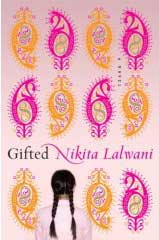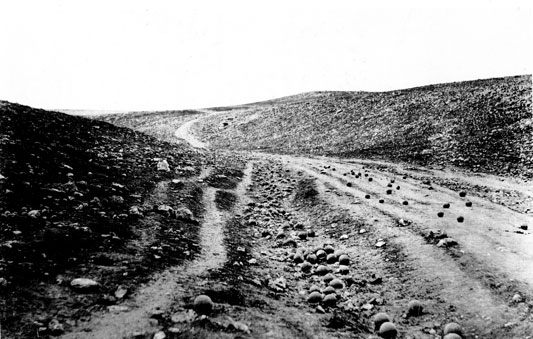Guha's Chapter 9, "Redrawing the Map," is about the early phase in the movement to establish language-based states, with particular emphasis on the south (the creation of Andhra Pradesh out of what was formerly the state of Madras), the status of Bombay vis a vis Maharashtra, and the delineation of Punjab.
As Guha points out, though reorganizing states according to language was part of the Congress plank from the 1930s, after Independence/Partition, both Nehru and Sardar Patel were strongly opposed to rushing into any reorganization of states, especially if there was a danger that such reorganizations could lead to the destabilization of the union. The logic behind this hesitation was understandable and quite sound: if the idea of "India" could be broken along the lines of religion, why not also language?
The first new state to be created along the lines of language was Andhra Pradesh, and this was largely due to the hunger strike of Gandhian activist and Telugu leader Potti Sriramulu, who is another one of those great, largely forgotten (well, forgotten outside of Andhra Pradesh at least) "characters" from post-independence Indian history who probably should be better known than he is:
Sriramulu was born in Madras in 1901, and studied sanitary engineering before taking a job with the railroads. In 1928 he suffered a double tragedy, when his wife died along with their newborn child. Two years later he resigned his position to join the Salt Satyagraha. Later, he spent some time at Gandhi's Sabarmati ashram. Later still, he spent eighteen months in jail as part of the individual Satyagraha campaign of 1940-41. . . .
Gandhi did regard Sriramulu with affection but also, it must be said, with a certain exasperation. On 25 November 1946 the disciple had beugn a fast unto death to demand the opening of all temples in Madras province to untouchables. Other congressmen, their minds more focused on the impending freedom of India, urged him to desist. . . .
Potti Sriramulu had called off that fast of 1946 at Gandhi's insistence. But in 1952 he Mahatma was dead; and in any case, Andhra meant more to Sriramulu than the untouchables once had. This fast he would carry out till the end, or until the government of India relented.
Potti Sriramulu died of his hunger strike on December 15, 1952. Three days later, Nehru announced that the formation of the state of Andhra out of the eleven Telugu-speaking districts of Madras.
Of course, with Andhra the reorganization was just beginning. Three years later, the national States Reorganization Committee announced a number of other changes. In the south, the job was easy, as there were four clear language regions (Telugu, Kannada, Tamil, and Malayalam) that could be allocated their own states.
In Bombay, the situation was more complicated, as the Marathi-speakers in Bombay comprised a plurality (43%) but not a majority of the city's residents as of 1955. Moreover, the economically dominant ethnic communities of Bombay -- especially Gujaratis -- strongly resisted the idea of making Bombay part of a Marathi-speaking state. However, following growing unrest and a series of "language riots" (memorably described in Rushdie's Midnight's Children), this merger eventually did happen in 1960, as Bombay was declared the capital of the new state of Maharashtra. (Suketu Mehta's book, Maximum City, has a lot more on how language and ethnicity politics have evolved in Bombay over the years -- warts and all.)
This Guha chapter doesn't detail how things would play out later in Punjab, where the Sikhs' early demand for a Punjabi-language state was denied by the States Reorganization Committee in 1955. (Sikhs have always anecdotally blamed this failure on the census of 1951, where Punjabi-speaking Hindus by and large described their primary language as "Hindi," confusing matters greatly.) When reorganization eventually did occur in Punjab in 1966, it caused lots of other problems, some of which would lead to a resurgent Akali movement, and eventually to the rise of Sikh separatism in the 1970s.
Partly as a result of what happened in Punjab (and we'll get to that in a few chapters), Guha's rather easy acceptance the language reorganization movements seems a bit glib to me:
When it began, the movement for linguistic states generated deep apprehensions among the nationalist elite. They feared it would lead to the balkanization of India, to the creation of many more Pakistans. 'Any attempt at redrawing the map of India on the linguistic basis,' wrote the Times of India in February 1952, 'would only give the long awaited opportunity to the reactionary forces to come into the open and assert themselves. That will lay an axe to the very root of India's integrity.'
In retrospect, however, linguistic reorganization seems rather to have consolidated the unity of India. True, the artifacts that have resulted, such as Bangalore's Vidhan Souda, are not to everybody's taste. And there have been some serious conflicts between states over the sharing of river waters. However, on the whole the creation of linguistic states has acted as a largely constructive channel for provincial pride. It has proved quite feasible to be peaceably Kannadiga, or Tamil, or Oriya--as well as contentedly Indian. (207-208)
Guha's premise that language-based politics works somewhat differently from the politics of religious communalism seems right to me. The latter seems inevitably divisive (and almost always destructive), while the former seems to have had several positive benefits (especially as it has led to support for regional literatures and the arts). And it's also clear that the reorganization along linguistic lines didn't lead to what was feared, "the creation of many more Pakistans."
But isn't it still true that the language-based politics that led to the creation of new states starting in the 1950s has also led state governments to certain excesses along linguistic/ethnic lines? Two such excesses might include the renaming of Bombay as 'Mumbai', and the recent renaming of Bangalore as 'Bengluru'. I'm also concerned about the language-based "reservations" that exist in some states, favoring the dominant ethno-linguistic community over other ethnic groups (though I admit I am not a specialist on this latter issue). Now that the states have been permanently established, is the perpetuation of language-based politics really that benign?

